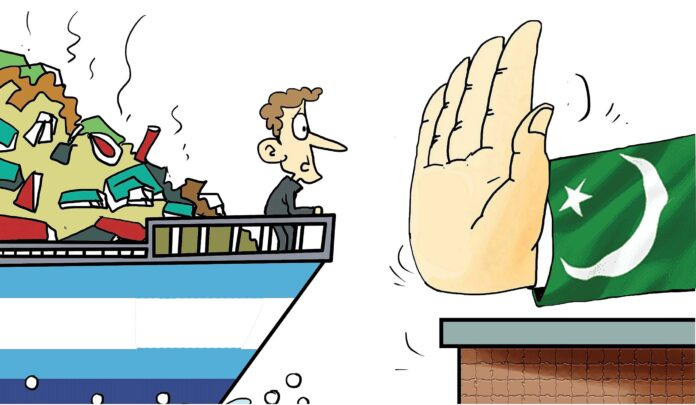What do you think of when someone says the word luxury? Is it silk robes, satin gowns and marble floors befitting a Roman Emperor? Or is it finely cut Italian boots, long cars with leather seats and a serving of albino caviars on a cruise yacht?
The word itself has a problem — there are no set limits to what is and what isn’t luxury. In Pakistan, for example, the definition of luxury may be a Toyota Fortuner, lamb chops, and throwing away gold coins at a wedding. Yet when the government gets involved, the definition of luxury becomes very important for one major reason: imports.
As Pakistan’s reserves have withered away and the economy has entered dire straits, the government has been trying everything other than concrete measures to plug the gap. One of these measures has been restricting imports. The only problem is, while stopping Baskin Robbins ice cream, cars, or Happy Cow cheese from entering Pakistan to save dollars is well and good, how many dollars is this really saving us? And more importantly, are there possibly crucial items that are imported in Pakistan and cannot be categorised as a luxury?
Look at it this way: The import component in a meal of daal fry with roti and a cup of chai is upwards of 85%. It is important to note that the aforementioned meal is the simplest meal any Pakistani has grown up thinking of. This is not luxury and how Pakistan got to a point where we became so insecure in our staples is a whole different yet relevant question.

Items as basic as feminine hygiene products, medicines, wheat, daal, and petrol. Pakistan was able to shrink its current account deficit for the first half of the fiscal year, by 60%, in December 2022. This figure was achieved by first banning luxury imports and then later monitoring the import of goods, case by case. Having achieved a low figure of current account deficit, has Pakistan really achieved the goals of economic austerity? And what do banned imports mean for a free market economy?
But more importantly, who gets to define what luxury imports are? What is the mechanism that is followed in categorising luxurious imports? What portion of our imports can in fact, be categorised as luxurious? How does a ban spill-over into the market, at large? And is this really the solution to the problem(s) that is faced by Pakistan? The content in this publication is expensive to produce. But unlike other journalistic outfits, business publications have to cover the very organizations that directly give them advertisements. Hence, this large source of revenue, which is the lifeblood of other media houses, is severely compromised on account of Profit’s no-compromise policy when it comes to our reporting. No wonder, Profit has lost multiple ad deals, worth tens of millions of rupees, due to stories that held big businesses to account. Hence, for our work to continue unfettered, it must be supported by discerning readers who know the value of quality business journalism, not just for the economy but for the society as a whole.To read the full article, subscribe and support independent business journalism in Pakistan










Thanks for sharing beautiful content. I got information from your blog. keep sharing.
온라인 카지노
j9korea.com
The government has the ability to discourage the occurrence of negative externalities by levying taxes on products and services that produce spillover costs. Subsidizing goods and services that produce positive spillover effects is one way the government can encourage the development of positive externalities.
Imports means need of more dollars